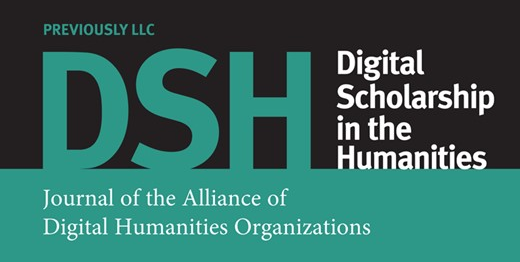Abstract
 This article seeks to reorientate ‘digital oral history’ towards a new research paradigm, Multimodal Digital Oral History (MDOH), and in so doing it seeks to build upon Alistair Thomson’s (Thomson, A., 2007, Four paradigm transformations in oral history. Oral History Review, 34(1): 49–70.) characterization of a ‘dizzying digital revolution’ and paradigmatic transformation in oral history (OH). Calling for a recalibration of the current dominance of the textual transcript, and for active engagement with the oral, aural, and sonic affordances of both retro-digitized and born digital OH (DOH) collections, we call for a re-orientation of the digital from passive to generative and self-reflexive in the human–machine study of spoken word recordings. First, we take stock of the field of DOH as it is currently conceived and the ways in which it has or has not answered calls for a return to the orality of the interview by digital means. Secondly, we address the predominant trend of working with transcriptions in digital analysis of spoken word recordings and the tools being used by oral historians. Thirdly, we ask about the emerging possibilities—tools and experimental methodologies—for sonic analysis of spoken word collections within and beyond OH, looking to intersections with digital humanities, sociolinguistics, and sound studies. Lastly, we consider ethical questions and practicalities concomitant with data-driven methods, analyses and technologies like AI for the study of sonic research artefacts, reflections that dovetail with digital hermeneutics and digital tool criticism and point towards a new MDOH departure, a sub-field that has potential to inform the many fields that seek patterns in audio, audio-visual, and post-textual materials, serially and at scale.
This article seeks to reorientate ‘digital oral history’ towards a new research paradigm, Multimodal Digital Oral History (MDOH), and in so doing it seeks to build upon Alistair Thomson’s (Thomson, A., 2007, Four paradigm transformations in oral history. Oral History Review, 34(1): 49–70.) characterization of a ‘dizzying digital revolution’ and paradigmatic transformation in oral history (OH). Calling for a recalibration of the current dominance of the textual transcript, and for active engagement with the oral, aural, and sonic affordances of both retro-digitized and born digital OH (DOH) collections, we call for a re-orientation of the digital from passive to generative and self-reflexive in the human–machine study of spoken word recordings. First, we take stock of the field of DOH as it is currently conceived and the ways in which it has or has not answered calls for a return to the orality of the interview by digital means. Secondly, we address the predominant trend of working with transcriptions in digital analysis of spoken word recordings and the tools being used by oral historians. Thirdly, we ask about the emerging possibilities—tools and experimental methodologies—for sonic analysis of spoken word collections within and beyond OH, looking to intersections with digital humanities, sociolinguistics, and sound studies. Lastly, we consider ethical questions and practicalities concomitant with data-driven methods, analyses and technologies like AI for the study of sonic research artefacts, reflections that dovetail with digital hermeneutics and digital tool criticism and point towards a new MDOH departure, a sub-field that has potential to inform the many fields that seek patterns in audio, audio-visual, and post-textual materials, serially and at scale.
